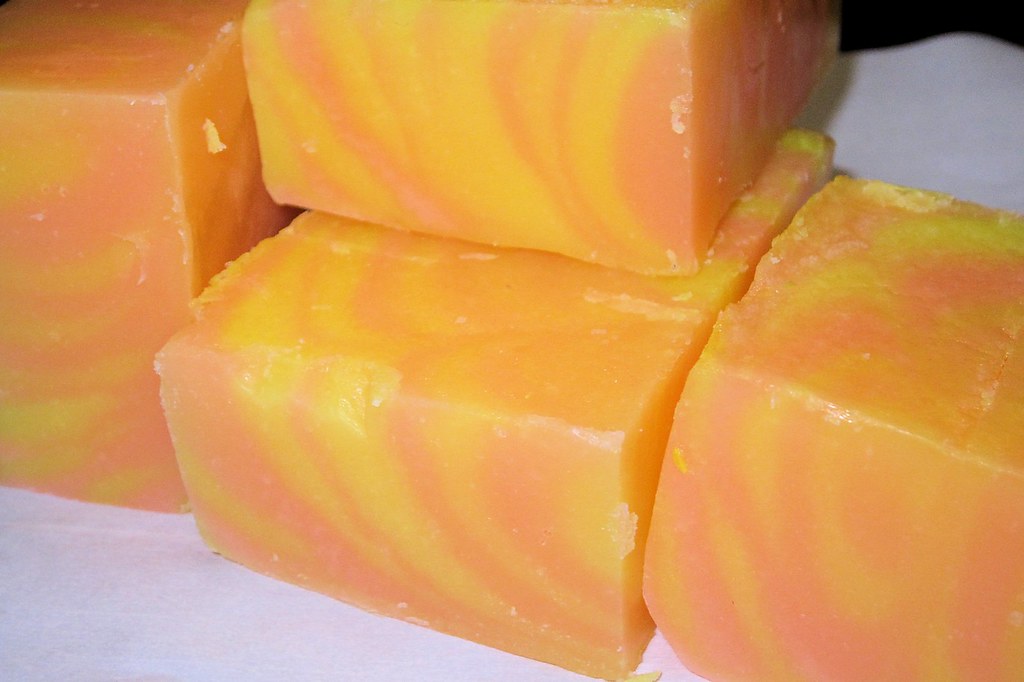Is coconut oil flammable?

Coconut oil is probably the “hottest” (ie most popular) oil of the 21st century. Some people use coconut oil as a miracle cure for almost everything.
But is coconut oil flammable?
Simply put, yes, coconut oil is flammable. All cooking oils are flammable, although the smoke point of each oil varies. Coconut oil is still safe to use. You just have to be aware of your smoke point, practice kitchen safety, and prepare for the unexpected.
Flammable simply means that it can burn, and this characteristic alone doesn’t tell us much. You’ll probably want to know if that makes coconut oil safer or more useful.
But do not worry. We will answer all these questions and more in the following article.
Is coconut oil flammable?
Yes, to be clear: coconut oil is flammable, just like olive oil, vegetable oil, and all other cooking oils. This does not mean that we should be afraid of cooking with them.
It does mean that we must exercise some caution when cooking with oil. In fact, you probably always need to be careful when cooking, especially when it comes to high heat or open flames.
If you are sautéing some vegetables or fruit in a nonstick skillet over medium heat, there is very little to no chance of your coconut oil catching fire.
If you start blending oils with different smoke points, leave the burner on high, or roast the oil in the oven, you could be literally playing with fire.
Coconut Oil Smoke Point
Refined coconut oil has a smoke point of 450 F (or 232 C). But unrefined virgin coconut oil has a much lower smoke point, just 350 F (or 177 C).
The smoke point of an oil is the maximum temperature to which it can be cooked before it begins to smoke or burn. The heated oil will boil, smoke, and then burn. If left exposed to too high heat for too long, it may burst into flame.
If you mix oils, such as combining coconut oil with olive oil in a frypot, you alter the smoke points of both oils, which can cause it to smoke, burn, and burn even faster. Check the smoke points of all the oils you cook with, especially when substituting oils in recipes.
How to put out a grease fire
Cooking-related fires are the number one cause of home fires. That’s why it’s good practice to know how to turn one off if a pot, pan, or oven is accidentally turned on.
Grease fires start when cooking oil is left on a heat source long enough for it to ignite spontaneously. This usually occurs when there is a distraction and food is left unattended. We all face distractions, so it’s best to prepare for any situation.
First of all, never try to put out a kitchen fire with water. Water will not put out a grease fire and may even cause it to spatter or spread.
If the fire is in a pot or pan, you can cover it with a metal lid or cookie sheet, never plastic or something that will melt.
Baking soda or salt will also put out a grease fire if it’s small enough to be manageable. Don’t try to use anything other than baking soda or salt, as other cooking agents can make the fire worse.
Once the fire is safely contained, turn off the heat source as quickly as possible.
If you have a class B fire extinguisher, you can use it on a grease fire. However, if you’re not sure what kind of extinguisher you have, it’s best not to use it, as the wrong extinguisher can make things worse.
If the fire is in your oven, turn off the heat immediately. Do not open the oven door, as the air will allow the fire to grow. Leave the door closed and if the fire is small it will go out on its own.
If at any time the fire becomes uncontrollable with a simple and quick action, leave your house immediately and call the fire brigade.
Using coconut oil for its flammable characteristics
Fire is not always bad. Fire is one of the main reasons why human beings have survived for as long as they have. If you’re responsible, coconut oil shouldn’t scare you.
In fact, it can be a very useful fuel source. If you enjoy camping or barbecuing, chances are you’ve come across lighters at some point in your life. They are often made with flammable substances that are questionable for their toxic load, at best.
By soaking cotton balls, cotton pads, or small bundles of cedar shavings in melted coconut oil and then cooling, you can create an extremely effective fire starter. You will need to keep them cold, as the coconut oil will turn to a melt if heated.
To be safe, start with a few chips or pads at a time, to make sure the fire doesn’t get away from you. Use general fire safety tips and practices whenever you work with fire, whether outdoors or in the kitchen.
Conclution
It is safe to conclude that not only is coconut oil flammable, but so are all cooking oils, including olive oil and vegetable oil. However, they all have different smoke points.
Coconut oil will also burn if you ignite it with a heat source and will continue to burn for a long time. It is an extremely efficient fuel source.
For safety, know how to contain a grease fire and always use caution when cooking, whether you use coconut oil or not.











